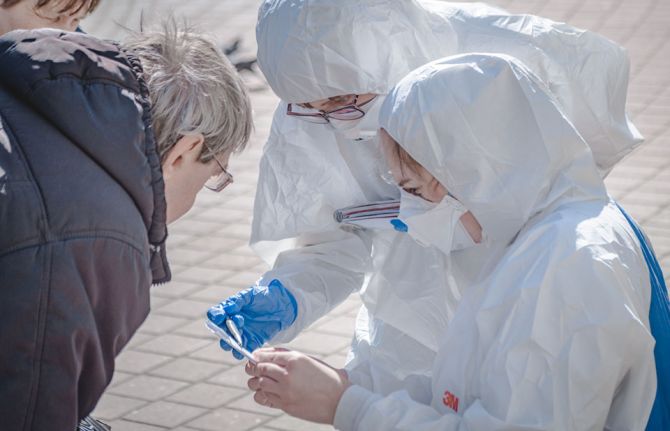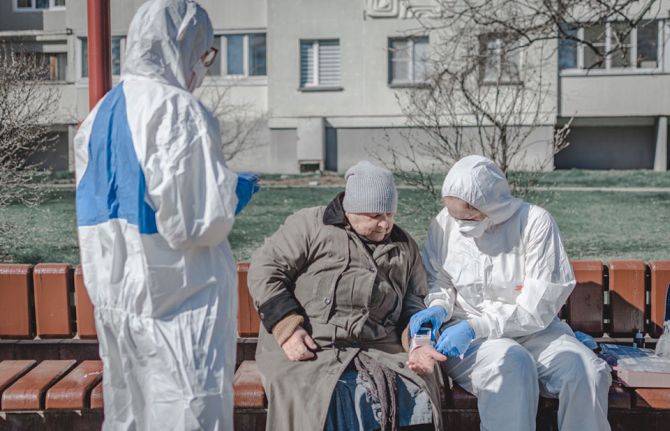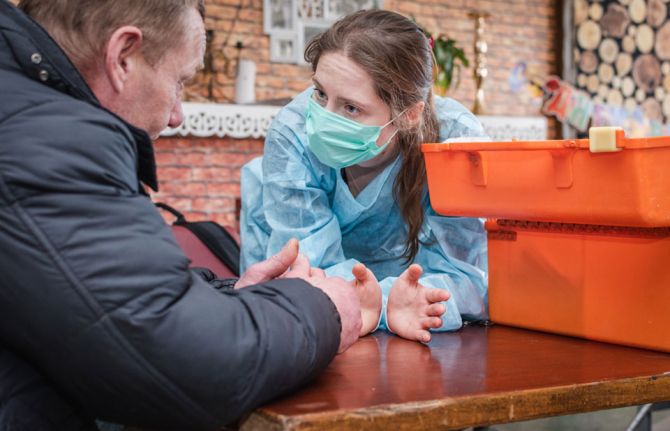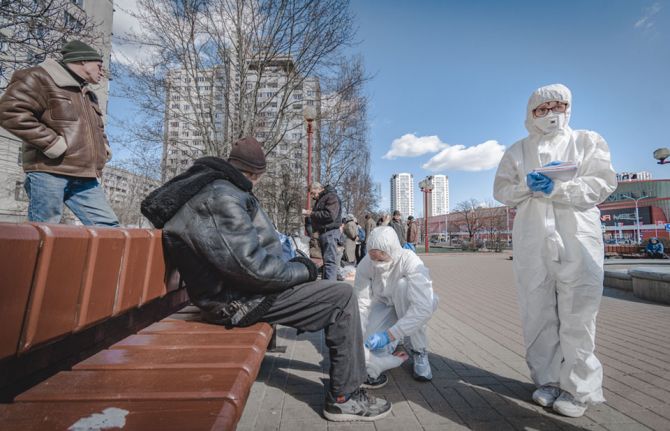





Feature Story
HIV testing and support for homeless people in Belarus
11 May 2020
11 May 2020 11 May 2020Homeless people have difficulty accessing health-care services at the best of times, but the COVID-19 pandemic has curtailed access even more. Stigma and discrimination and the conditions they live in make homeless people particularly vulnerable not only to COVID-19 but also tuberculosis, HIV, hepatitis and other diseases.
“Before the COVID-19 pandemic there were about 11 shelters in Minsk where people could get clean clothes, wash themselves, have food and stay for a night. Now only three of them remain open,” said Karina Radchenko, a volunteer from Street Medicine, the country's first volunteer network to treat the homeless. “We know that some of them are living with HIV, but because they don’t have proper identification and residence registration they can’t get free treatment. This is why we need to keep providing support to the homeless, especially now.”
Launched by Street Medicine, UNAIDS, the Positive Movement—a Minsk-based nongovernmental organization that provides HIV services—and the Ministry of Health of Belarus, a new initiative is providing HIV testing and support to the homeless during the COVID-19 pandemic.
Working on the streets, the volunteers distribute condoms, hygiene packs and over-the-counter medicines and provide HIV testing and counselling together with first aid, such as wound treatment and bandage application. The first phase of the initiative will see at least 200 homeless people in Minsk and beyond being tested for HIV and will collect information on their HIV prevention needs and the barriers they face in accessing HIV treatment and other health services.
“Homeless people very often don’t have identification, and this complicates a formal recognition of their HIV status and their access to HIV treatment,” said Vera Ilyenkova, the UNAIDS Country Manager for Belarus. “One of the goals of this initiative is to help people who test positive for HIV to get connected to health facilities so they can get treatment and proper documents from the authorities.”



